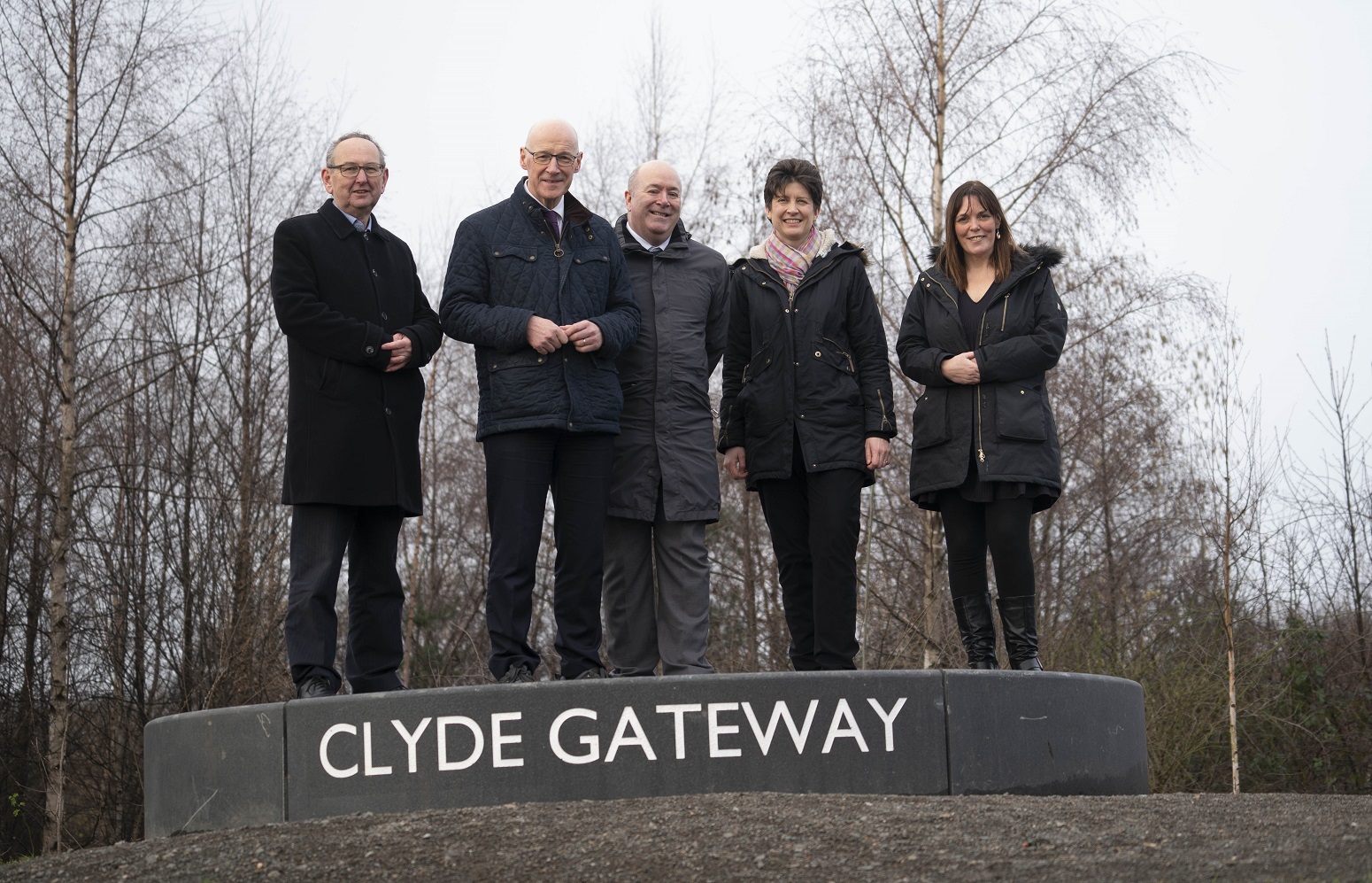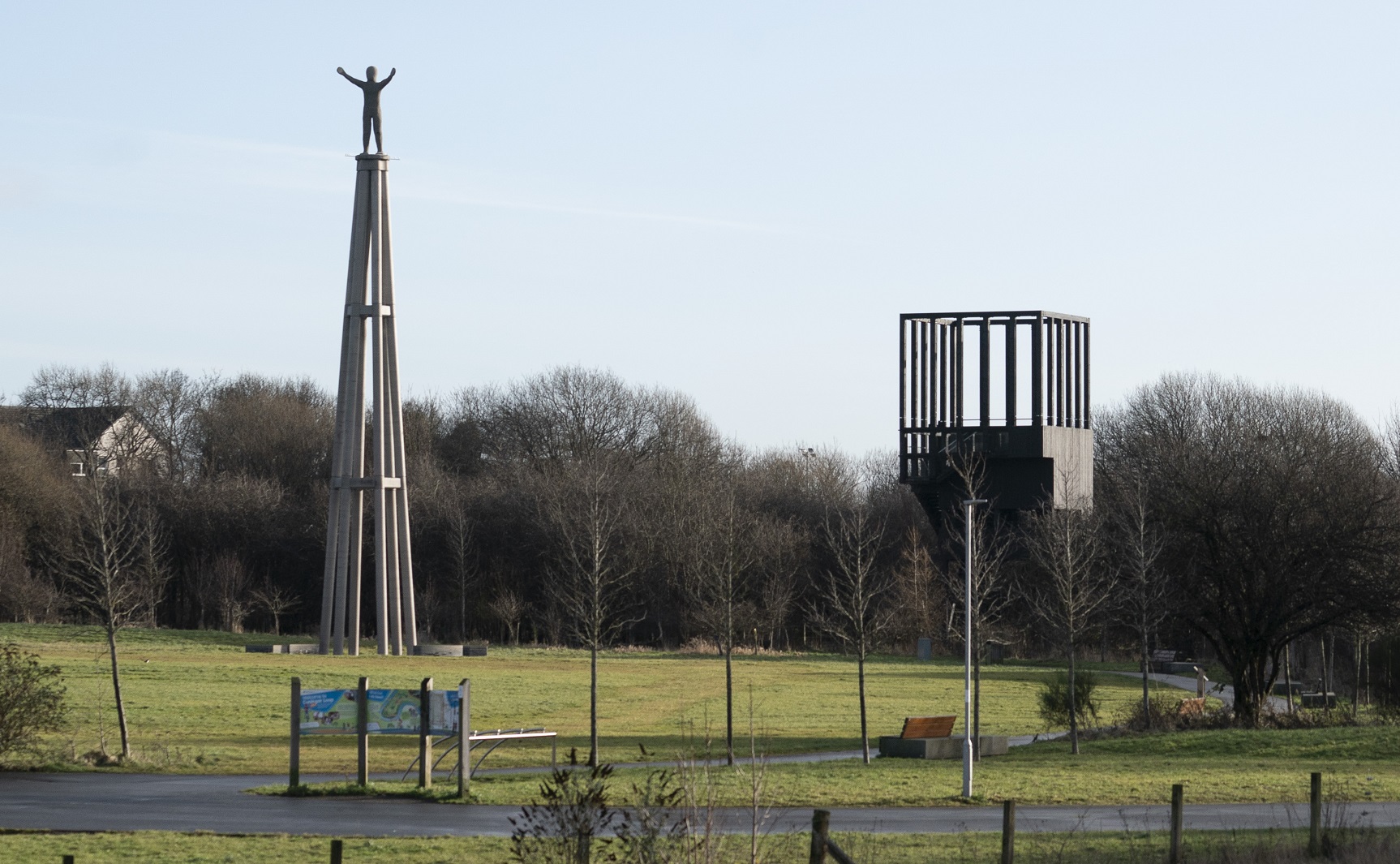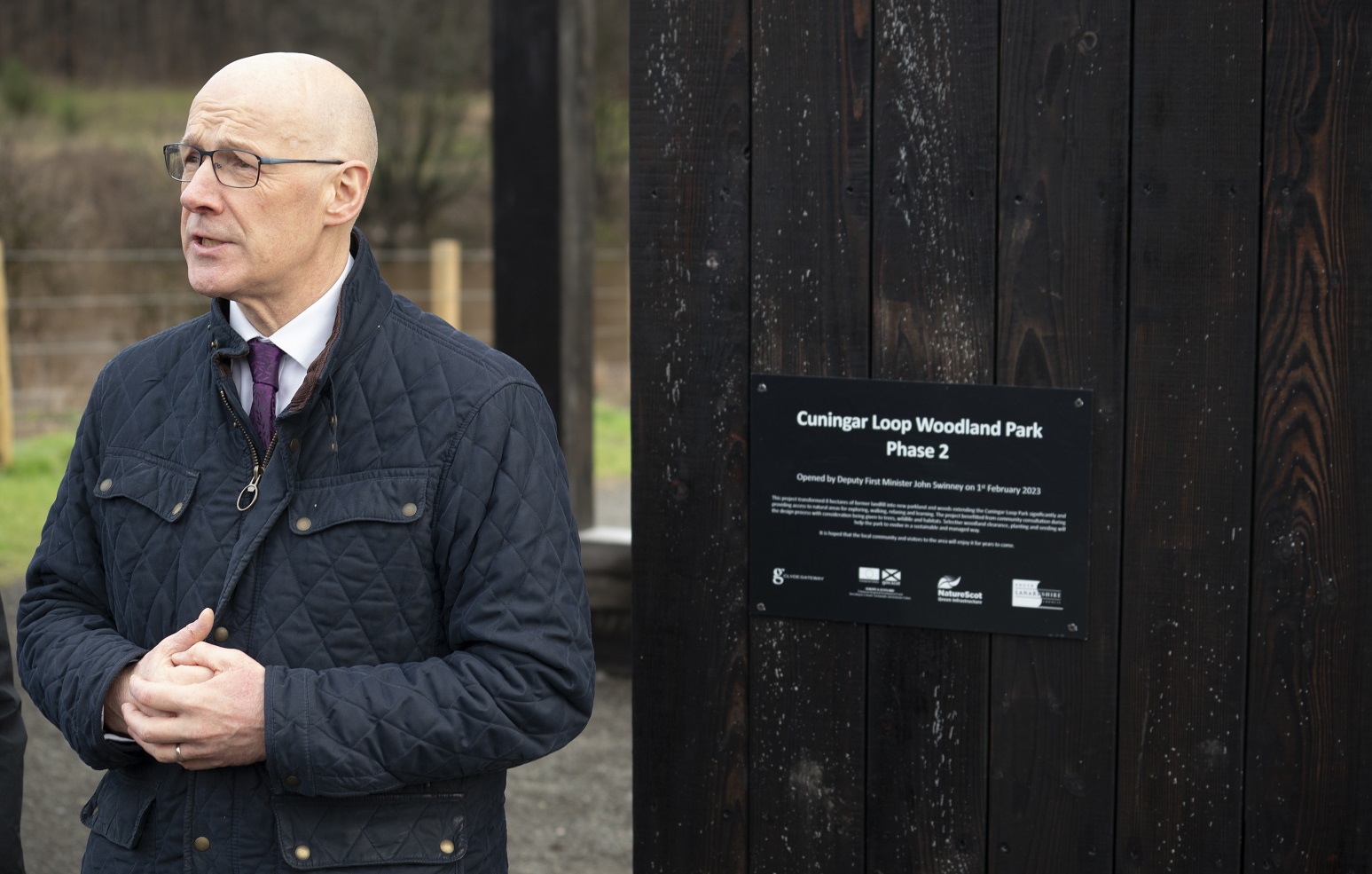Deputy First Minister opens £3m Cuningar Loop park extension and new facilities

(from left) Ian Manson, John Swinney MSP, Martin McKay, Alison Thewliss MP and Rosie Robertson
A £3.16 million extension to Clyde Gateway’s largest parkland, Cuningar Loop Woodland Park, along with its new facilities, has been opened by Deputy First Minister, John Swinney MSP.
The Cuningar Loop Woodland Park, which is managed by Forestry and Land Scotland, sits south of the Emirates Arena on a former landfill site on the banks of the River Clyde.
The major extension has been supported by the Scottish Government’s Clyde Mission, which contributed £2.3m as part of its wider aim to revive the Clyde corridor and rejuvenate the local economy. This was in addition to Green Infrastructure funding from NatureScot, supported by the European Regional Development Fund and part of a wider £15m investment in urban Scotland.
The extension adds a further eight hectares to the existing 12 hectares of parkland and transforms a further area of derelict and inaccessible former landfill into green space. The new area includes 1,722 metres of footpaths and an extension to the riverside walkway, a teaching amphitheatre created with tree trunks, 167 specimen trees and 11,000 square metres of wildflower meadow and grassland.
Visitors to the new extension will also be able to enjoy other new facilities installed recently, including The Bothy - a business and community hub with public toilets, treetop views across the park from the new accessible Tur, and Steuart Padwicks’ ‘Hope’, the COP26 Legacy Sculpture, completed during last November’s conference and providing a symbol of a greener and brighter future.

A view of the Steuart Padwicks’ ‘Hope’, the COP26 Legacy Sculpture and The Tur lookout tower
Deputy First Minister John Swinney said: “Community green spaces have become even more vital since the pandemic and Cuningar Loop is an urban wildlife haven for local communities to enjoy and a further contribution to the ongoing transformation of the Clyde Gateway area.
“This new extension was designed, funded and constructed during the pandemic and I want to pay tribute to the determination exhibited by everyone involved and in particular the construction teams who worked through many difficult circumstances.
“We are pleased to make this investment in Clyde Gateway and continue to support the regeneration underway to create a greener and fairer economy in line with the National Strategy for Economic Transformation.”
Ian Manson, Clyde Gateway’s chief executive, said: “We put our communities at the heart of everything we do and this latest investment in the magnificent Cuningar Loop woodland park allows community groups to meet and work within a forest-themed setting.
“Residents now have even more park facilities right on their doorstep and we hope they will make full use of these brilliant new facilities that will have a positive impact on their health and wellbeing.
“The park is also loved by visitors from across the city and the Tur lookout tower gives people another reason to visit the park for a great day out.”

John Swinney MSP speaking during the opening ceremony
Rosie Robertson, Clyde Gateway board member and local resident said: “We are grateful for the Green Infrastructure and Clyde Mission funding which allowed the construction of the project to be accelerated and the wishes of local people to be met well ahead of time.
“The Cuningar Loop Woodland Park is another step forward in Clyde Gateway’s wider programme of green regeneration, seeking to attract new business and green jobs and also help local people live in affordable and sustainable homes.
“There is still much more to come with this fantastic park, with plans underway to improve access, extend it further and in partnership with South Lanarkshire Council, provide food growing areas for local people.”
Mike Cantlay, chair of NatureScot, said: “Cuningar Loop is a truly idyllic place, with nature and community at its centre, supporting biodiversity in the heart of the city. The river boardwalk and walkway allow people to enjoy the wildlife, which we know brings many benefits to our health and wellbeing.
“As Scotland’s nature agency, we aim to inspire many more people to discover and value our natural world, so we are thrilled to support this investment in urban green space.”






















